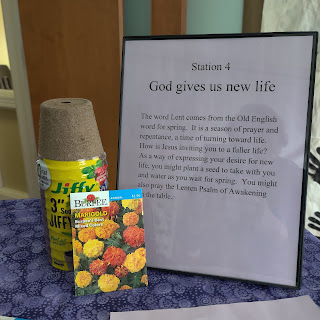I preached on the parable of the Lost Son on Sunday, and as I mentioned in the sermon, I found Amy Jill Levine’s book Short Stories by Jesus to be really helpful as I wrestled with the story.
She had these observations about parables that didn’t make
it into the sermon, but that I’ve continued to ponder this week:
. . . what makes the parables mysterious, or difficult,
is that they challenge us to look into hidden aspects of our own values, our
own lives. They bring to the surface unasked questions, and they reveal the
answers we have always known, but refuse to acknowledge.
Parables . . . tease us into recognizing what we’ve
already always known, and they do so by reframing our vision. The point is less
that they reveal something new than that they tap into our memories, our
values, and deepest longings and so they resurrect what is very old, very wise,
and very precious. And often, very unsettling.
As I shared in the sermon, I’ve come to a new and deeper
appreciation for the father’s words to the older son at the end of the parable:
‘My beloved child, you are always with me and everything I have is yours . . .’
I’m still sitting with those words this week, and I keep running into these
lost and found parables in my daily life.
On Friday night last week we went to see the Grand Rapids
Christian Middle School production of Godspell Junior. We haven’t been to a
play in a long time, and I wore my favorite bright pink embroidered blouse from
Mexico with my bright yellow scarf from London and a favorite pair of earrings
that Jay and the kids gave me several years ago. When we got home after the
play, I was only wearing one of the earrings. I really like those earrings –
they were from Haiti, they went with lots of things, and they were precious to
me because the kids picked them out for me.
The next morning, I texted Jay (who was out with Peter doing
Little League tryouts) to ask him to search the car, in case it had fallen out
there. I asked Emma if there was a lost and found at the high school that she or
I could check on Monday. And I asked Bri, when she went back for the afternoon
performance, if she could look for it. She reminded me that she would be
backstage, so unlikely to be where I lost it. I was heading out for a walk with
Luna when both girls said, ‘Just walk over the high school and see if it’s
outside.’
The weather on Saturday morning was not pleasant, but the dog and I needed a walk, so we headed over to the high school, and there it was, right by the door, where I had taken off my mask when we headed outside. I cheered – I may have even jumped up and down – I definitely confused Luna who wasn’t sure what was going on. I texted Jay right away – found it! And when I got home, I announced to the girls, ‘I’m like the woman with the coin! We’re even going to celebrate!’ One of them pointed out that we were going to celebrate because it was a belated birthday gathering, not because I found my earring, but I was really glad. Thinking about it still makes me smile.
And, as I said, I’m still thinking about these parables. I
try to do the wordle each night and on Monday night, the word was ‘FOUND’.


